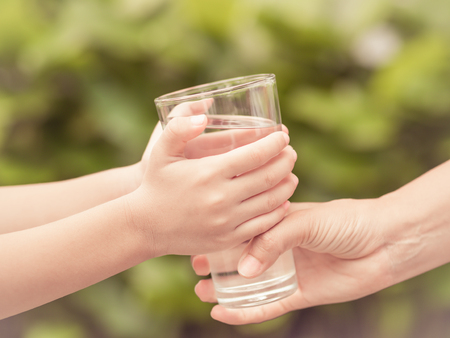Understanding the Role of Hydration in Pregnancy
Proper hydration is a vital part of a healthy pregnancy, playing an essential role in supporting both mom and baby throughout each stage of development. During pregnancy, your body requires more water than usual to help form the amniotic fluid, support increased blood volume, and aid in nutrient delivery to your growing baby. Staying hydrated also helps regulate your body temperature, flush out toxins, and prevent common discomforts such as constipation, swelling, and urinary tract infections. For expectant mothers in the U.S., where busy lifestyles and varying climates can impact daily routines, its especially important to be mindful of water intake. By prioritizing hydration, you’re not only caring for your own well-being but also laying a strong foundation for your baby’s growth and development.
2. How Much Water Do Pregnant Women Really Need?
Staying hydrated is crucial during pregnancy, but many moms-to-be wonder exactly how much water they should be drinking. The answer isn’t one-size-fits-all, and there are a lot of myths floating around. Here’s what you need to know to keep yourself and your baby healthy.
Recommended Daily Water Intake for Pregnant Women
According to the American College of Obstetricians and Gynecologists (ACOG), pregnant women should aim for about 8–12 cups (64–96 ounces) of water per day. This includes all fluids from beverages and some moisture from foods like fruits and vegetables. However, factors such as activity level, climate, and overall health can influence your individual needs.
| Trimester | Recommended Water Intake |
|---|---|
| First Trimester | About 8 cups (64 oz) daily |
| Second Trimester | 10 cups (80 oz) daily |
| Third Trimester | 10–12 cups (80–96 oz) daily |
Common Myths About Hydration in Pregnancy
- Myth: You should drink a gallon of water every day while pregnant.
Fact: More isn’t always better. Drinking excessively can actually throw off your body’s electrolyte balance. - Myth: All fluids count the same toward hydration.
Fact: While water is best, milk and herbal teas contribute, but caffeinated or sugary drinks should be limited. - Myth: If you’re not thirsty, you don’t need more water.
Fact: Thirst is not always a reliable indicator—especially during pregnancy. It’s better to sip throughout the day.
Practical Tips for Busy American Lifestyles
- Keep a reusable water bottle with you at all times—at work, in the car, or running errands.
- Add natural flavors like lemon or cucumber if plain water is hard to drink.
- Set reminders on your phone to take sips regularly throughout the day.
- If you live in a hot or dry climate, or exercise regularly, consider increasing your intake slightly.
- Don’t forget that hydrating foods like watermelon, oranges, and cucumbers count toward your total fluid intake!
Your Takeaway
Pregnancy increases your body’s water needs. Aim for 8–12 cups a day, listen to your body, and use these practical tips to help make hydration part of your everyday routine.
![]()
3. Signs of Dehydration to Watch Out For
Staying well-hydrated during pregnancy is crucial, but it can sometimes be easy to miss the early signs of dehydration. Knowing what symptoms to look for can help you take action before dehydration becomes a more serious problem. Here are some common warning signs that may indicate you’re not getting enough fluids:
- Dark yellow urine: Light, pale yellow urine is a good sign of hydration; darker color usually means you need more water.
- Feeling thirsty or dry mouth: Thirst is a clear signal from your body that it needs fluids.
- Headaches: Dehydration can cause or worsen headaches during pregnancy.
- Dizziness or lightheadedness: These symptoms can be a result of low fluid levels and may affect your balance.
- Fatigue: Not drinking enough water can make you feel unusually tired or weak.
- Dry skin or chapped lips: Your skin may lose moisture and become less elastic if you are dehydrated.
- Constipation: Proper hydration helps keep digestion regular; lack of fluids can lead to constipation.
When to Seek Medical Help
If you notice any of the following severe symptoms, it’s important to contact your healthcare provider right away:
- No urination for eight hours or more
- Very dark urine, even after drinking fluids
- Rapid heartbeat or breathing
- Confusion or difficulty focusing
- Persistent vomiting (which prevents you from keeping liquids down)
Your health and your baby’s well-being depend on staying properly hydrated. Don’t hesitate to reach out to your doctor if you have concerns about dehydration or experience any worrisome symptoms during pregnancy.
4. Practical Tips for Staying Hydrated
Maintaining proper hydration during pregnancy can feel challenging, especially with a busy lifestyle or pregnancy-related symptoms like nausea. However, staying on top of your water intake is easier when you have simple strategies and routines in place. Here are some practical tips to help expectant moms meet their hydration needs every day.
Healthy Beverage Choices
While water should be your primary source of hydration, other drinks can also contribute to your daily fluid intake. The table below outlines healthy beverage options and those to limit:
| Beverage | Recommendation | Notes |
|---|---|---|
| Water | Best Choice | Zero calories, no sugar; aim for at least 8-10 cups daily |
| Milk (dairy or fortified alternatives) | Good Choice | Provides calcium and vitamin D; choose unsweetened varieties |
| Herbal Tea (caffeine-free) | Occasional | Check with your provider about safe herbs during pregnancy |
| 100% Fruit Juice (diluted) | Sparingly | High in natural sugars; limit to 1 small glass per day if desired |
| Sugary Drinks & Soda | Avoid/Limit | High sugar content, little nutritional value; may contribute to excessive weight gain or gestational diabetes risk |
| Caffeinated Drinks (coffee, tea) | Limit | No more than 200mg caffeine daily; check with your doctor for personal recommendations |
Create a Hydration Routine
- Start your day with water: Drink a glass of water first thing in the morning to kick-start your hydration.
- Pace yourself: Sip small amounts throughout the day rather than trying to drink large quantities all at once.
- Tie water to activities: Make it a habit to drink a few sips before each meal and snack, after bathroom breaks, or when you take prenatal vitamins.
- Set reminders: Use phone alarms or apps to prompt regular water breaks if you tend to forget.
Keep Water Handy All Day Long
- Cary a reusable water bottle: Having water within reach makes it much easier to sip throughout the day. Choose a bottle you enjoy using and refill it often.
- Add some flavor: If plain water feels boring, add slices of lemon, lime, cucumber, or a few berries for a refreshing twist—just watch out for added sugars in store-bought flavored waters.
- Track your intake: Some bottles have measurement marks so you can see how much you’re drinking. Apps or journals work too!
- If you’re on the go: Pack an extra bottle in your bag or car so you’re never caught without water during errands or appointments.
The Bottom Line on Staying Hydrated During Pregnancy
Prenatal hydration doesn’t have to be complicated. By making smart beverage choices, setting up easy routines, and keeping water accessible wherever you are, you can ensure both you and your baby stay healthy and energized throughout pregnancy.
5. Hydration and Common Pregnancy Symptoms
Staying well-hydrated is a simple yet powerful way to help manage some of the most common pregnancy symptoms. Many moms-to-be experience swelling, constipation, or morning sickness during pregnancy, and drinking enough water can make a real difference in how you feel day to day.
Swelling (Edema)
Swelling, especially in your feet and ankles, is very common during pregnancy. While it might seem counterintuitive, drinking more water actually helps reduce swelling. When your body is dehydrated, it tries to retain as much water as possible, which can worsen puffiness. By keeping up with your fluid intake, you help flush out excess sodium and waste products that contribute to swelling.
Constipation Relief
Prenatal vitamins and hormonal changes often slow down digestion, leading to constipation for many expectant mothers. Water keeps things moving by softening stools and supporting regular bowel movements. Pairing adequate hydration with fiber-rich foods can go a long way toward easing this uncomfortable symptom.
Managing Morning Sickness
Nausea and vomiting are hallmarks of early pregnancy for many women. Small, frequent sips of water throughout the day can help reduce queasiness and prevent dehydration caused by vomiting. If plain water doesn’t sit well with your stomach, try infusing it with lemon or sipping on cold water for a refreshing twist.
Pro Tip:
If you’re struggling with nausea, keep a reusable water bottle handy at all times and take small sips regularly instead of gulping large amounts at once.
Listening to Your Body
Your thirst levels may change from day to day based on your activity level, weather, and how far along you are in your pregnancy. Always pay attention to your body’s signals—if you’re feeling thirsty or noticing darker urine, it’s time for another glass of water. Staying hydrated isn’t just about comfort; it’s an essential step toward managing symptoms and supporting a healthy pregnancy journey.
6. When to Be Extra Careful: Special Situations
While staying hydrated is always important during pregnancy, there are certain situations when your body may need even more water than usual. Being aware of these special circumstances can help you and your baby stay healthy and comfortable.
Hot Weather
When temperatures rise, your body loses more fluids through sweat. Pregnant women are especially sensitive to heat, making it crucial to increase your water intake during the summer months or if you live in a warmer climate. Carry a reusable water bottle with you, take breaks in the shade or air conditioning, and wear light, breathable clothing to help manage your hydration levels.
Physical Activity
Exercise is great for your health during pregnancy, but it also means you’ll lose more fluids. Whether you’re walking, swimming, or practicing prenatal yoga, be sure to drink water before, during, and after physical activity. Even mild exercise can increase your fluid needs, so listen to your body and sip water regularly throughout your workout.
Illness
If you come down with a fever, stomach bug, or experience vomiting or diarrhea, your risk of dehydration goes up. These symptoms can quickly drain your body’s fluid reserves. It’s important to replace lost fluids by drinking small amounts of water frequently. You might also benefit from oral rehydration solutions or clear broths if recommended by your healthcare provider.
Other Factors to Consider
Certain medical conditions like gestational diabetes or preeclampsia may require extra attention to hydration as well. Always consult with your OB-GYN or midwife if you have concerns about how much water you should be drinking based on your unique health needs.
Remember:
Your hydration needs can change from day to day. By tuning into your body and adjusting for these special situations, you’ll be better equipped to support a healthy pregnancy for both you and your baby.
7. Healthy Drink Choices Beyond Water
While water is the best and most essential beverage for staying hydrated during pregnancy, it’s not your only option. Many expectant moms want variety in their drinks or need alternatives when they crave something different. Here are some safe, nourishing drink choices—and a few beverages to avoid—to help you meet your hydration needs throughout pregnancy.
Safe and Nutritious Options
- Milk: Both dairy and fortified plant-based milks (like almond, soy, or oat milk) provide calcium, vitamin D, and protein, supporting your baby’s bone growth and overall development.
- Herbal Teas: Certain herbal teas, such as ginger or peppermint, can be soothing and help with common pregnancy discomforts like nausea. Always check with your healthcare provider before trying new herbal blends, as some herbs aren’t recommended during pregnancy.
- Coconut Water: Naturally hydrating and full of electrolytes, coconut water is a gentle alternative if you’re feeling dehydrated—especially after bouts of morning sickness.
- Infused Water: Add slices of fruit, cucumber, or fresh herbs to your water for extra flavor without added sugar or calories.
Beverages to Limit or Avoid
- Caffeinated Drinks: While small amounts of caffeine (like that found in coffee or black tea) are generally considered safe during pregnancy, high intake should be avoided. The American College of Obstetricians and Gynecologists recommends limiting caffeine to less than 200 mg per day—about one 12-ounce cup of coffee.
- Sugary Beverages: Soda, sweetened teas, sports drinks, and energy drinks can spike blood sugar levels and add unnecessary calories. These offer little nutritional value and are best enjoyed rarely, if at all.
- Unpasteurized Juices and Milk: Always choose pasteurized versions to avoid the risk of harmful bacteria that could pose health risks to you and your baby.
- Alcohol: No amount of alcohol is considered safe during pregnancy. It’s best to avoid alcoholic beverages entirely while expecting.
Making Smart Beverage Choices
If you’re unsure about a certain drink or ingredient, consult your OB-GYN or midwife for guidance. Remember that staying hydrated doesn’t mean you have to stick with plain water all day—just focus on safe options that nourish both you and your growing baby.


